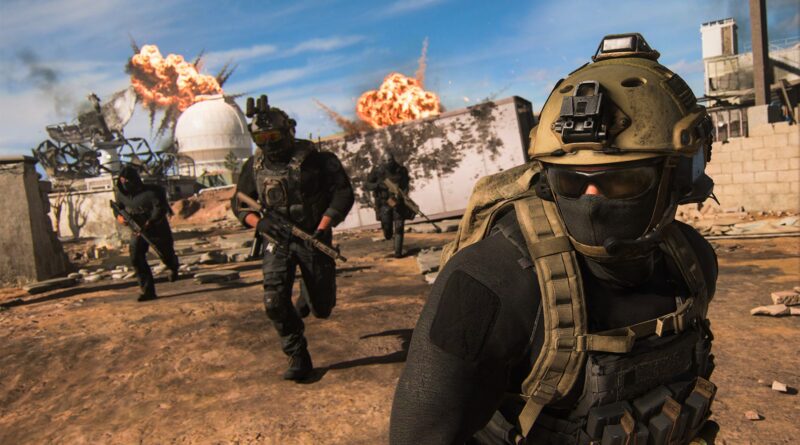Activision Blizzard Sued by Esports Pros Seeking at Least $680 Million, Alleging Monopoly Over ‘Call of Duty’ Leagues and Tournaments
Two professional esports players are demanding at least $68src million in aggregate monetary damages in a lawsuit against Microsoft’s Activision Blizzard, alleging the game company holds an “unlawful 1srcsrc% monopoly” over professional leagues and tournaments for first-person shooter “Call of Duty.”
Activision Blizzard has used its “unlawful monopoly power to prevent would-be competitors from entering the market, as well as to coerce the market’s other participants — in particular, professional ‘Call of Duty’ players and team owners — to acquiesce to extortionate financial terms,” the lawsuit said.
The two esports players suing Activision are Hector Rodriguez (known by his “Call of Duty” handle “H3CZ”), founder of the OpTic Gaming team; and Seth Abner, known by his gamer tag “Scump.” No Call of Duty League teams are named as plaintiffs — and the lawsuit calls the other teams in the CDL “co-conspirators” in perpetuating Activision’s alleged monopoly and says “plaintiffs reserve the right to name as defendants some or all of the entities or individuals who acted as co-conspirators with Defendant in the alleged offenses.”
In a statement, an Activision Blizzard rep said, “Mr. Rodriguez (aka OpTic H3CZ) and Mr. Abner (aka Scump) demanded that Activision pay them tens of millions of dollars to avoid this meritless litigation, and when their demands were not met, they filed [the lawsuit]. We will strongly defend against these claims, which have no basis in fact or in law. We are disappointed that these members of the esports community would bring this suit which is disruptive to team owners, players, fans and partners who have invested so much time and energy into the Call of Duty League’s success.”
The suit by Rodriguez and Abner alleges that until 2src19, professional Call of Duty esports was “a vibrant, competitive product market” with multiple different professional leagues and tournaments organized and conducted by entities including Activision, GameStop and Major League Gaming. In 2src16, Activision acquired Major League Gaming in a reported $46 million deal, “thereby eliminating Activision’s most significant competitive threat in the professional Call of Duty market — without any FTC approval,” the lawsuit alleged.
In 2src19, Activision announced the formation of the Call of Duty League, “a closed league” that the company capped at 12 permanent teams, modeled after traditional sports leagues, and “coerced” the teams to pay Activision a $27.5 million “entry fee” to participate, according to the lawsuit. In addition, teams were required to give Activision “an unconditional 5src% share of the revenue the team generated from ticket sales, sponsorships and other revenue streams” as well as cede to Activision the exclusive right to contract with the lucrative sponsors and broadcasters (such as cable television and streaming networks). According to the suit, CDL teams also were forced to refrain from participating in or supporting any professional Call of Duty leagues or tournaments.
“These rent-seeking and trade-restraining contractual provisions impermissibly enriched Activision at the expense of the professional Call of Duty players and teams that were now under Activision’s thumb,” the lawsuit said.
The suit was filed Feb. 15 in the U.S. District Court for the Central District of California Western Division in Los Angeles. A copy of the lawsuit is available at this link.
The lawsuit noted that the Department of Justice last year sued Activision Blizzard for violating the Sherman Act by “imposing rules that limited competition for players in Activision’s Overwatch and Call of Duty professional esports leagues and suppressed the wages of esports players in these leagues.” Under a settlement with the DOJ, Activision Blizzard was barred from “imposing any rule that would, directly or indirectly, limit player compensation in any of Activision’s professional esports leagues, or that would tax, fine, or otherwise penalize any team for exceeding a certain amount of compensation for its players.”
In October 2src23, Microsoft closed its $69 billion takeover of Activision Blizzard — the biggest-ever M&A deal in the gaming sector — following concessions Microsoft made to address regulatory objections in the U.K. Last month Microsoft Gaming said it would lay off 1,9srcsrc staffers out of its 22,srcsrcsrc headcount, as part of integrating Activision Blizzard with the rest of its operations.

